There are two refreshing and intriguing topics on the investing and personal finance front: Cryptocurrency & Freeganism. They are probably on two extreme ends of the scale so I thought it would be interesting to bring them together and juxtapose with each other.
Cryptocurrency: Revenge Of The Millennials
I didn’t want to embarrass myself too much in this post, so I actually spent some hours reading more about cryptocurrency and its underlying technology, blockchain. Which led me down one shit hole after another filled with more questions than answers.
Especially when you don’t take the information you read for granted and keep probing “how is that so?”
My belief is only a minority few who are hands-on/intimate with the technology fully understand and appreciate what is going on.
And since I am not one of them, I decided to take a step back and do what I think could provide more value/entertainment:
Look at the bigger picture.
The Rise Of Cryptocurrency
Many millennials feel they are getting a raw deal these days.
With increasing life expectancy, Baby Boomers and Gen X are hoarding the cushy middle and upper management positions in the traditional corporate world, which reducing social mobility and stifling the career of the average millennial.
The conventional trophies of the top quintile, big houses and fast cars, are increasingly out of reach for even the brightest millennials, which is leaving many of them sore.
A millennial who is able to save $50,000 a year for housing (outlier) and invest it at 10% returns (outlier) would “only” end up with about $3 million at the end of 20 years. That is likely not enough for a 3BR condominium in the central core district, not to mention landed houses in Nassim Road.
Now you see why so many millennials just want to work for 10 years and then FI.
But some of them are fighting back, with the biggest advantage millennials have over the preceding generations:
Being natives in the tech and digital world.
Digital currencies, or Cryptocurrency, is definitely a domain of the Millennials.
There are plenty of barriers to entry for non tech-savvy folks. For instance, buying and storing them relatively safely is complicated as compared to gold/silver. Before 2017, millennials would probably have accounted for >90% of the crypto market participants.
Typically, a market exists when there is a demand and supply and the clearing price is something agreed between the buyers and sellers.
However, it’s extremely hard to value a cryptocurrency. It requires some imagination of what the future will be like. Believers reckon it will follow the trajectory of PayPal two decades ago while naysayers think it’s going to be bust like another Pets.com.
There’s very little consensus on the valuation, which explains the extreme volatility of the crypto market.
But extreme volatility is a good friend of the millennial. When 10% or even 15% annual returns don’t cut it and you need to quadruple your money for a downpayment on a condo within the year, pouring money into cryptocurrency suddenly seems very very rational.
The odds do seem better than a casino and in the current socio-economic structure, many millennials believe they have very little to lose.
If they are able to lure the preceding generations to sell their house and participate in this market, demand would soar, valuations would rise further and many millennials can then realise their dreams and exact their revenge.
Fundamentally, “invest in ETFs, they rise in the long run” and “invest in cryptos, they will be valuable in the future” are not that much different. The outcomes will be quite scary when these beliefs are shaken and the market starts to unwind.
Losers will be created and yes, there’s always losers in a game.
The Impact Of Blockchain
If cryptocurrency’s long-term viability etches on its battle with fiat money, I really doubt it can triumph in the long run. You cannot forget that the state has the monopoly and legitimate use of violence and will definitely strike back.
Thus, the prevailing opinion floating in the mainstream is that the blockchain technology is the real deal.
That said, the net benefit of blockchain to the human race will probably not be as big as colonizing Mars.
Well, if my understanding is right, it probably won’t even enlarge the economic pie by much. It’s business that gets the bonanza as they can make more profits by reducing costs. The tech is really more about minimizing the resources needed to track, verify and audit economic transactions.
And what type of resources are we talking about? Expensive human resource.
Big companies and institutions have started experimenting to ensure that they are not behind the curve and I believe it’s a matter of when (and not if) that smart contracts become mainstream.
Afterall, 20 years ago, businesses did not see the need to have an online presence and 10 years ago, people were still skeptical banking transactions could ever be performed online (security threats). And then, look at where we are now.
If I were a high-salaried employee in some support or back office roles, I had better start doubling down on those heavy liabilities/debts.
Before some millennials come up with some blockchain applications and make my role obsolete.
Freeganism: A Useful Tool In The Box
Like most others, I came to know about Freeganism in Singapore after CNA shared the video below and introduced Daniel Tay to Singaporeans.
My sensing is that except for a couple of financial bloggers, the rest of the community are not very comfortable with the core tenets of freeganism.
Living Off The Land Like Thoreau Is Complementary To FIRE
Honestly, I don’t understand some of the vitriol.
All right, I admit I cannot imagine myself doing dumpster diving at this point. But that doesn’t mean I dismiss the whole movement.
Well, the smell of truffle and truffle fries disgust me, but I definitely don’t go around and diss people who consume these stuff.
Freegans are reducing waste, recycling usable stuff and then they give away the bulk of their finds to others who need them more. What’s there not to like?
I am pretty sure Henry David Thoreau would approve of these Freegans in Singapore. In this day and age, literally living off the land (moving to the forest and farming) would get you into lots of trouble with the law.
In my opinion, freeganism is just a modern day interpretation of Walden.
The public image and perception of Freeganism would have gotten a big lift if they had consulted me and associated themselves more with Thoreau on a philosophical level.
And of course, focusing less on dumpster diving. I am pretty sure the appearance of the cockroach at 5:28 in the video above turned many people off, including me.
But hey, objectively, one cannot dismiss the possibility of cockroaches crawling on the tomatoes at wet markets and supermarkets too. Granted, the odds are lower. But well, most people don’t avoid hawker centres just because the environment is less hygienic than restaurants.
Another way of seeing Freeganism is as a sharing economy. Really, not that much different from Uber/Grab or AirBnB. Instead of paying a reduced price, you just get stuff/services for free.
If one could adopt some Freeganism like getting end-of-the-day unsold vegetables and bread from a vegetable stall or bakery, it should definitely speed up the FI process.
Reducing your monthly expenses from $2,000 to $1,000 would mean that you immediately halve the amount you need to save up.
Freeganism Could Mean Fewer Worries About Money
I do understand that for most people, especially financial bloggers, there’s no real need to go down the Freegan path.
It’s probably more palatable and reasonable to work for 20 years, accumulate $1 million and live off the 5% returns of the savings. That should provide the same standard of living as the median household in Singapore.
But what if after accumulating the $1 million and quitting your job, you are still spending everyday worrying about not having enough?
I personally think that’s where Freeganism comes in.
In the video, Daniel Tay (Face of Freeganism) talks about being diagnosed with a depressive order (3:03). One of the main triggers was worrying about money, the lack of it.
Although it was not explicitly revealed, I guess things got better after he stumbled on Freeganism and realised that he could get most things for free. Once he realised he needed very little money to survive and thrive, the money worries just dissipated.
Mortals like me cannot comprehend why Elon Musk keeps pumping all his start-up windfalls to the next riskier start-up. But Elon doesn’t worry about money, because he knows he will always be able to make millions if money was the goal. He’s not afraid of going belly-up as he knows he has the skill and ability to generate the money again and again.
So he just chases his dreams and pursues projects meaningful to him.
If I manage to internalise some of the freegan habits, know that I only need $1,000 a month to thrive, and can easily generate that amount with minimal time/effort, my whole paradigm could shift. Fundamentally, just like Elon, worries about the lack of money will cease.
Thus, Freeganism also ties in beautifully with a key aspect of Stoicism: Practising Voluntary Discomfort.
If I am able to shed the ego, dumpster dive and obtain stuff for free even when there’s no need to, that’s preparation for times when shit hits the fan. When true adversity really arrives, I will be much more prepared for it. I would also have toughened up and not find the situation so bleak.
With that, there is less anxiety towards the unknown future. It’s amazing that I will be able to live a better life right now by being a Freegan.
A person who has made a seven-digit profit from investing in cryptocurrency yet indulges in Freeganism would be an awesome person to meet.
When money comes by so easily, it takes even more conviction to stay true to those principles.
I would probably kow-tow to him in utmost respect.
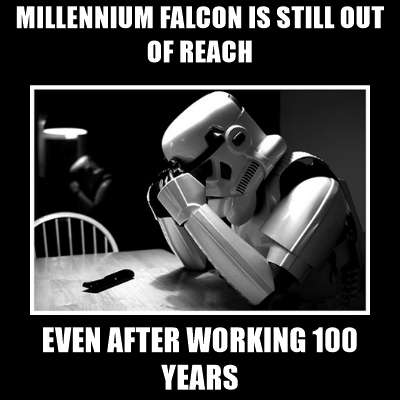
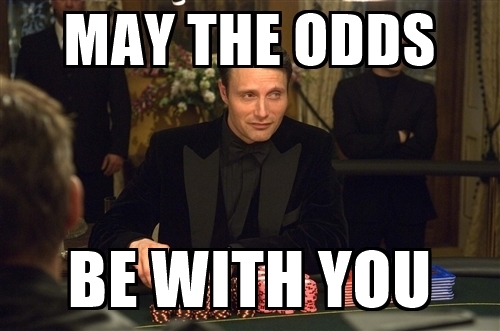
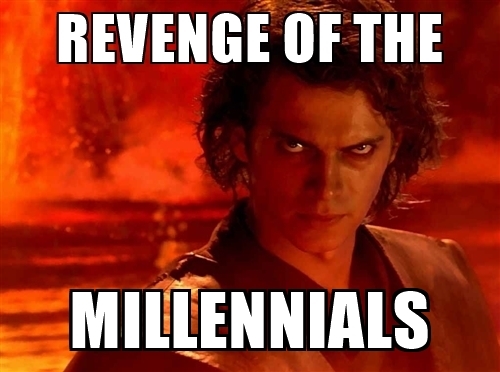
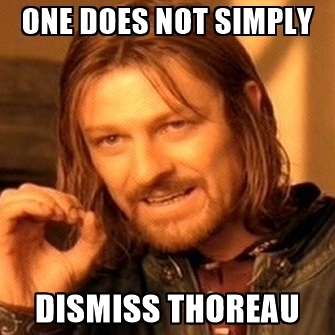
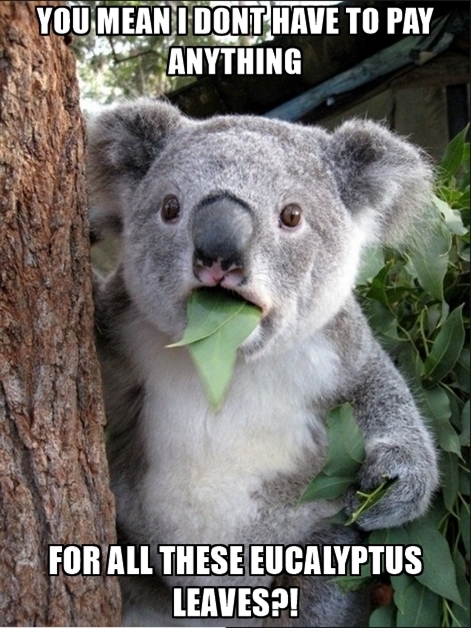
Taking unsold goods from stalls and shops are not the same as digging into bins when personal hygiene is serious concern. Who knows what is thrown into bins? I blew my nose into tissue paper and throw them into bin.
Hi Uncle CW8888,
I share the same concerns as you and it’s unlikely I will ever consume food from the bins too.
Hi 15HWW,
Tks for the backlink.
It’s unfortunate that the media and Daniel tends to sensationalize what they are doing.
So it does give a sufficiently worse reputation than what it really is.
The media intentionally included the scene of the cockroach… of which, cockroaches and other bugs run around from the farm all the way to the retail outlets. The thing is, most of the time people don’t see it, but in this case, it is put there for people to see it.
Daniel doesn’t really eat food from the bins, cos there are easier ways to find clean and free food, the journalists asked if he would eat food from the bin so that they could film him. He agreed only if the journalists eat the same food, and so they did.
Many people in the community are concerned with hygiene and their own health. Cos they know that what they do contains certain amounts of risk, and thus, they make sure to be aware of the risks and the actions required to mitigate the risk.
On a similar note, many people handle cash, cash is one of the dirtiest things around. Many people also don’t wash their hands before they eat. I think it’s quite common to see people pay at the counter and tuck into their KFC.
It’s unfortunate that the media doesn’t include all these additional info to give the community a better reputation. But then again… this would bore the watchers.
I think that’s where the misunderstanding and hate come from. Cos there is a lack of coverage of the other details.
Hi ERSG,
Thanks for sharing some of the background to the video. Really enlightening to know something rather extreme is painted to be more “extreme” to generate more buzz.
Living on $1,000 a month isn’t the goal. Living on $100 a month or less, is. Pre-FI, you still have mortgage, insurance and long-term savings to pay for.
Post-FI, mortgage is paid up, far less need for insurance and long-term savings. If you could live happily on $100 a month and have all your needs and wants met, doesn’t it make FI much more achievable at a younger age?
That’s the real attraction, and it is being done here. That is what initially attracted me to freeganism – to find out how is it possible to live on $100 a month in Singapore and still have everything you need and want in life.
I haven’t reached FI yet, but my mentor has. Unfortunately he’s too busy enjoying himself to bother with the media.
Hi Daniel,
Nice to have you here.
I would actually think that for most financial bloggers, being able to live on $1,000 a month is already considered an achievement. And for them, saving up $250,000 to churn out that $1,000 every month wouldn’t take too long too, so it’s a rather good compromise. Especially compared to “having to live on $100” a month.
I still think the best value for most people is understanding this concept better so that if necessary, they can be prepared to live on much less like a few hundred dollars a month.
Hi 15HWW,
It’s not “having to live on $100” a month, but choosing to do so, the same way a person may choose to live on $1,000 a month, I suppose. As freegans, we challenge each other to reduce our expenses, because bringing it to zero means no longer having to rely on money to get everything we need and want. Part of the challenge is not simply spending less, but how to get what we want for free. This deliberate limitation makes us think and view the world differently.
Also, because the less we spend, the more we get. It’s counter-intuitive, but true. ERSG can attest to that. Here’s an example of the amount of free bread I get every day: https://freeganinsingapore.wordpress.com/2018/01/03/bread-collections/
You couldn’t buy this much bread every day even if you wanted to. You could argue, “But I don’t want to.” Which means you don’t get placed in situations where you can help a lot of people without spending much money. You don’t need to be rich (or financially independent) to help a lot of people.
Incidentally, I saw in your recent post a breakdown of your expenses, so I thought I’d share my monthly average since the year just ended:
Transport – $64
Dog’s food – $28
Town council – $20
SP Services – $12
Internet – $14
Mobile – $26
Household – $40
Food – $0.67
IT – $29
Entertainment & Travel – $30
Pets maintenance – $27
Gifts – $6
Misc (buffer) – $7
Sub-total: $304
+ Fixed expenses $900
= Total monthly average: ~ $1,200
Hi Daniel,
Thanks for sharing the blog post and the different ways you arranged the bread is really interesting.
And appreciate the sharing of your expenses which reminds me how bloated my expenses can be.
What strikes me as the most impressive is how you managed to keep your food expenses at less than $1 and SP services at $12.
Will probably try to arrange to meet up with you and ERSG soon to learn more.
Hi 15HWW,
There’s $8 of expenses last year which I incurred as part of the journey to bring food expenses to zero. Basically, there’s so much food waste that it doesn’t really make sense to me to buy any food. Especially now that I know customers are the one who pay for the food waste.
Your expenses include your wife’s, while mine doesn’t. My SP Services, internet and town council bills are halved since I share them with her. My wife isn’t freegan and she doesn’t track her expenses, so I don’t know what her numbers look like.
There are two main reasons why our SP Services bill is so low. The first is GST vouchers. We stay in a 3-room HDB flat, so we get GST vouchers to offset our SP Services bills. For about 4 months this year, we didn’t have to pay anything, and we had balance credits to offset part of the following month’s bills.
The second reason is that we don’t use air-con. There’s only 1 week each year where the weather is unbearably hot that we have to turn on the second fan. We chose a flat that has unblocked view all the way to town and all the way to Malaysia. It’s a north-south facing flat, so we get uninhibited wind almost all year. That’s why we don’t need air-con.
My average monthly usage is 131kWh electricity, 25 kWh gas, and 4.3 Cu M water.